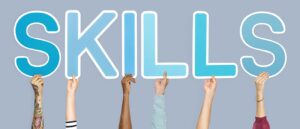Many of your study strategies–habits you have developed on and relied on over time–work great! Still, many students find when they start college or take on more challenging course material that some habits might need to be tweaked. Reflection is a powerful tool, and LSC is ready to help you delve into thinking about what study habits continue to work for you and what you might want to change – studying for college can be very different than studying in high school; you will be expected to not just memorize things, but to apply and evaluate information.
Below are some strategies you can explore and try out-see what works for you!
Studying for and Taking Exams
- Effective Study Strategies: Retrieval Practice, Blank Page Testing, Interleaving, Spaced Practice, etc.
- Concept Mapping – How to make a concept map, and why they can help you tie ideas together.
- Guidelines for Creating a Study Schedule – Suggestions for making your study more efficient.
- The Five Day Study Plan – A way to plan when and how to study for exams.
- What to do with Practice Exams – Why does taking practice tests work?
- Consider Exam Logistics – Your approach to exams should vary depending on if the exam is in-person or online, if it is timed, and if you have access to a quiet place to take it.
- Online Exam Checklist – Online exams present a unique set of logistical challenges, whether you are home or on-campus. Be prepared! Gather as much intel as possible about the testing format before the exam.
- Open-Book Exams: Understand what it means, you still need to study!
- How to Tackle Exam Questions – Strategies for different types of exam questions plus tips for decoding exam questions.
- What to do when you get your graded test (or essay) back: Whether the score you earned makes you want to jump for joy or curl up into a ball, learning from your graded work is an incredibly valuable opportunity. Do not, repeat DO NOT, immediately toss or file away the test or essay you just got back! Here’s what to do instead.
Taking Notes
- The Cornell Note Taking System – How to use the Cornell note taking system, with our interactive Canvas module.
- Learning from Digital Materials – What strategies work best?
Reading Strategies
- 3 P’s for Effective Reading – Purpose, Plan, and Preview
- Textbook Reading Systems – How to use the SQ3R and other reading systems.
Learning Online
- Online Learning Checklist: a checklist of how to be prepared to learn online.
- Things to Keep in Mind as you Participate in Online Classes (including troubleshooting tips!)
- Learning from Online Lectures and Discussions: Successful online learners, like all learners, have a growth mindset! They are flexible, tolerate the inevitable technical problems that arise, ask for help when they need it, keep on top of regular work for each class, minimize distractions as much as possible, and persist when things are hard.
- Online Group Work: Just because you aren’t in the same room (or country!), doesn’t mean that you can’t collaborate effectively. Just like with any kind of group work- for online group work to be successful it helps if you think through, in advance, the ground rules for how you will work together. See LSC’s Student Guide for Studying Together for more tips.
- Learning Online Resource Videos
Getting your Questions Answered
- Office Hours – What they are and how to make the best use of them.
- LSC Supplemental Courses are offered in support of student learning in a variety of large introductory courses.
- LSC offers tutoring in a variety of disciplines including chemistry, biology, math, statistics, physics, languages, and economics.
- You can also form your own study group or find a study buddy.


